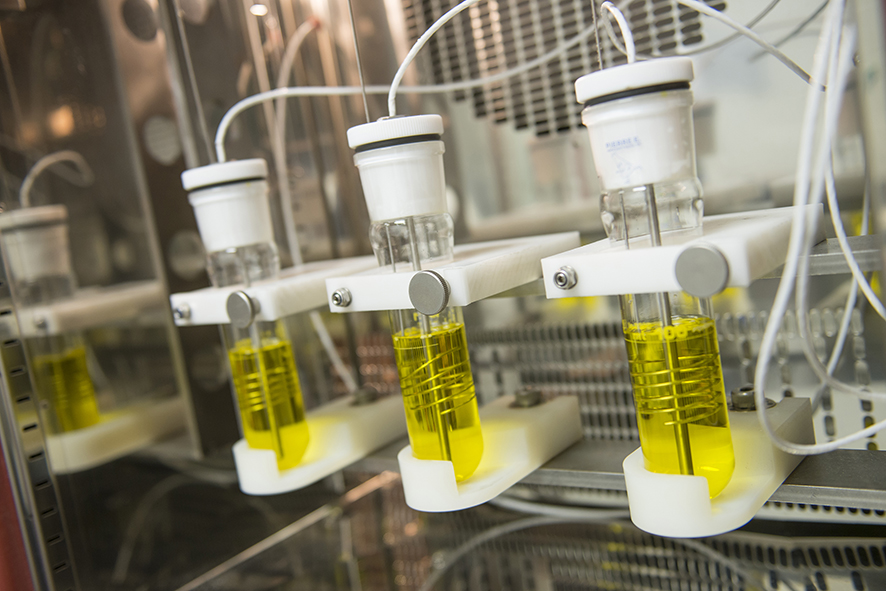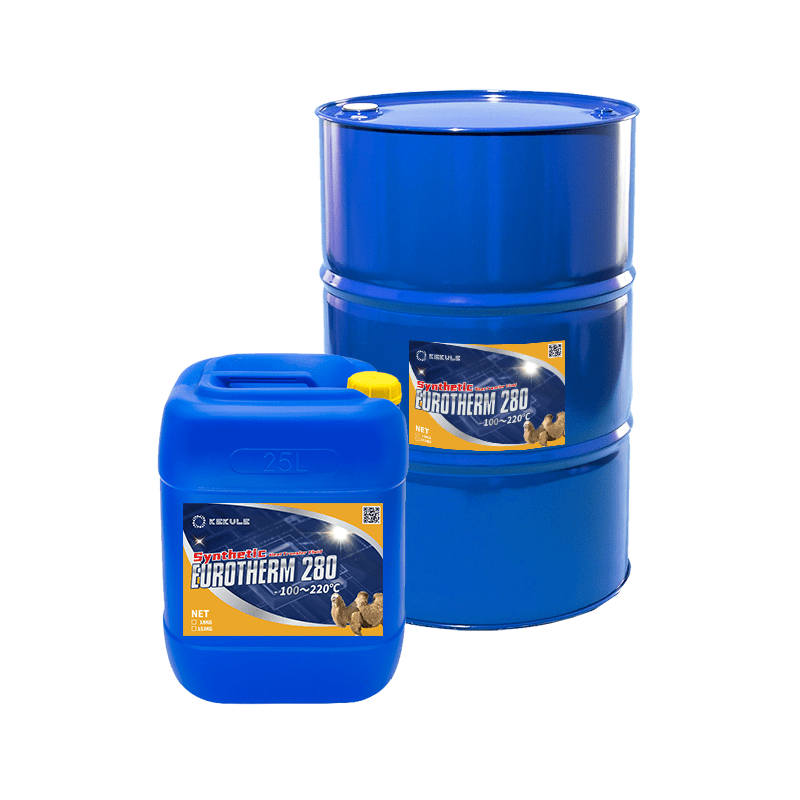Why Warm Transfer Fluid Is Very Important for Optimizing Power Transfer in Equipment
The duty of heat transfer liquids in maximizing power transfer is essential for accomplishing reliable thermal administration across numerous commercial sectors. These fluids promote smooth warm exchange, guaranteeing procedures run within ideal temperature varieties and mitigating the risk of overheating.

Duty in Thermal Monitoring
Warm transfer liquids play a vital duty in thermal monitoring by efficiently regulating temperatures in various commercial processes and systems. These specialized liquids assist in the transfer of warm in between various parts, making sure optimal operating problems and protecting against overheating. By preserving specific temperature control, warmth transfer liquids allow markets such as chemical production, oil and gas, and power generation to operate safely and efficiently.
The choice of an appropriate warm transfer liquid relies on a number of aspects, consisting of thermal security, heat capacity, and thickness. High thermal security guarantees that the liquid can stand up to extreme temperatures without deteriorating, while a high warm ability permits it to take in and launch significant quantities of warmth - heat transfer fluid. Reduced thickness minimizes the energy needed for pumping, adding to overall system performance
Moreover, warm transfer fluids are integral in applications like refrigeration, where they aid soak up and dissipate warmth during the cooling cycle. In solar thermal power systems, these fluids capture and transportation solar heat to create electricity or supply hot water. Their flexibility to diverse operating conditions and capacity to maintain consistent thermal performance emphasize their relevance in commercial thermal monitoring, facilitating operational continuity and improving security actions.

Enhancing System Effectiveness
To make best use of the advantages of thermal management, improving system effectiveness with the tactical use of warmth transfer fluids is extremely important. These fluids play an essential function in optimizing power transfer by helping with regular thermal regulation, which consequently influences the overall performance and durability of systems. Effective warmth transfer brings about decreased energy losses, minimized operational expenses, and enhanced integrity of equipment. By keeping ideal temperature level levels, heat transfer liquids help make sure that systems operate within their developed parameters, consequently stopping overheating and decreasing the threat of element failing.

Kinds Of Heat Transfer Liquids
The variety of warm transfer liquids emphasizes their crucial role in a variety of industrial applications, each tailored to fulfill details thermal monitoring demands. These liquids assist in her latest blog efficient energy transfer and are picked based on key residential or commercial properties such as thermal stability, viscosity, and heat capability. The main types consist of water, glycol services, oils, and synthetics, each offering unique benefits.
Water is one of the most usual heat transfer medium because of its high particular warmth capacity and inexpensive. However, its usage is limited by its freezing and boiling factors. Glycol combinations, frequently used in a/c systems, supply a reduced freezing point, including convenience in different environments. Mineral oils are preferred for their thermal stability and non-corrosive nature, making them suitable for high-temperature applications.

Artificial fluids, consisting of silicone and fragrant compounds, offer extraordinary thermal security and are made use of in settings requiring severe temperature varieties. These fluids guarantee superior efficiency in systems where traditional fluids may fail. The selection of a heat transfer liquid is vital, as it influences system efficiency, safety, and durability. Each kind must be picked to straighten with the functional needs and the specific problems of the application it offers.
Environmental and Economic Advantages
Making use of the best warm transfer fluids provides significant ecological and economic advantages for commercial procedures. By selecting liquids with superior thermal security and high heat capacity, markets can enhance power performance, causing lowered fuel intake and reduced greenhouse gas emissions. This adds to a smaller sized use this link carbon impact and straightens with global sustainability goals. Eco friendly warmth transfer fluids, typically biodegradable and non-toxic, decrease the danger of soil and water contamination in the event of leakages or spills, thus safeguarding environments and following rigid environmental regulations.
Financially, the best heat transfer fluid can dramatically lower operational costs. Effective warmth transfer minimizes power expense, leading to lower utility expenses and boosted profitability. In addition, liquids with extended lifecycle efficiency lower the regularity of replacements and maintenance, lowering downtime and linked costs. Buying top quality fluids can additionally mitigate the danger of devices deterioration and failing, staying clear of costly repair work and prolonging the lifespan of essential infrastructure. In competitive markets, these savings and effectiveness supply an unique benefit, permitting firms to allot sources extra effectively and spend in more innovation. Overall, the strategic use of optimal heat transfer fluids sustains lasting financial development and ecological stewardship.
Choosing the Right Liquid
How does one navigate the complex process of picking the right warm transfer liquid for commercial applications? Thermal stability makes sure the liquid can hold up against high temperature levels without weakening, while compatibility protects against corrosion or other damaging reactions with system parts.
Furthermore, the fluid's heat check over here ability and thickness are vital. A high warm capacity allows the liquid to take in and transfer more power, improving effectiveness.
Conclusion
The strategic option and application of warmth transfer fluids are fundamental to maximizing power transfer across numerous systems. By making certain high thermal stability and capacity, these liquids supply accurate temperature level control and boost total system effectiveness. This optimization contributes to lowered functional costs and reduced greenhouse gas discharges, thus advertising sustainability. The option of liquid, customized to particular viscosity and functional demands, is crucial for taking full advantage of performance and attaining financial and environmental advantages in industrial processes.